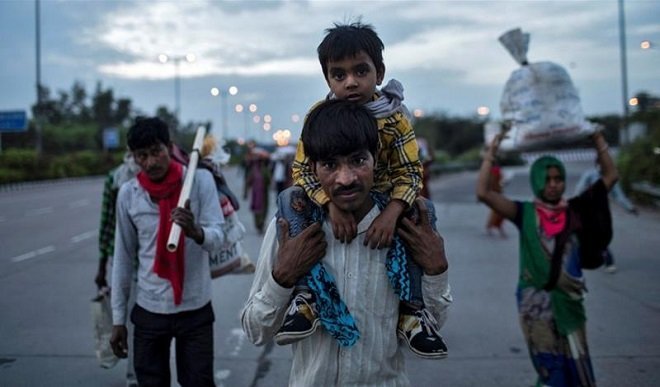National
Domestic Help and the Covid-19 Lockdown in India – An Observation
Prapti Kakati
As the major economic superpowers of the world gripple with the Covid-19 pandemic, resulting in national lockdowns, one cannot help but imagine the plight of the section of the population that would be affected the most – the unskilled, daily waged labour force. On 24th March, the Prime Minister of India, Narendra Modi announced a country-wide lockdown for 21 days to tackle the Corona Virus which has affected almost half a million people worldwide. Prior to this announcement, many states had already gone into lockdown, enforcing measures to make sure people maintain social distancing and remain confined to their houses. However, these measures have proved disastrous for the one section whose work is located in the urban middle-class household – the domestic help. While a lot of people have dismissed their domestic help fearing the transmission from outside, others are not willing to pay their full salaries, citing irregularity reasons. Simultaneously, a large number of women are not able to travel to their place of work, due to the suspension of the buses, metros and local trains as well as the strict vigilance by the police.
Legendary Singer Lata Mangeshkar Donates To Combat COVID-19
Although the labour force participation rate (LFPR) among women in India was 26.97, according to a 2018 World Bank report, yet women take up the greater percentage – almost 75% of the domestic labour force in India. There is a massive disparity of income between men and women, with the women domestic labour earning less than 10,000 rupees per month on an average. A significant part of this work-force do not have access to banks, which would make them unable to get the financial assistance provided by the government. Although the finance minister, Nirmala Sitharaman, has announced a range of measures including cash payments of Rs. 500 per month for three months to all women members of self-help groups and an increase in wages, one cannot help but wonder what this meagre five hundred rupees would do to sustain an entire family. There is no constitutional enforcement of rights for the domestic worker, and most of them do not sign any legal contract with their employers, making them vulnerable to more salary-cuts and underpayment. The centre has encouraged employers to pay their domestic help in full, but mere words of encouragement would not guarantee it.
मुख्यमंत्रियों से बोले पीएम मोदी, कुछ हफ्तों में टेस्ट, आइसोलेशन और क्वारंटाइन पर फोकस
In most families of India’s domestic workers, it is the women who are the primary earners, a significant number of them being widowed or left by the husbands. They migrate from the rural areas or the outskirts, where little to no focus is given to women’s education and skill development, leaving them with no option but to look for jobs as domestic help. Domestic abuse is one of the most common experiences majority of the women have to face. The lockdown, and the immediate loss of work for these women would mean getting trapped in their abusive families with little to no income, and no way to search for alternative work, along with the burden of the household work of their own. They are placed in a vicious predicament – the women not granted leave have to travel on foot to their employer’s houses, leaving them vulnerable to getting infected, while the women not working would go without a salary – making it difficult for their families to make ends meet during this time of crisis. While the centre has announced multiple care packages for the poor, there should be measures specifically cut out for the domestic workers – especially guaranteeing their full salaries. Measures are being taken by a lot of non-profit organizations in Bihar, Orissa, Maharashtra etc. which are a welcome relief, but the extent needs to be widened. There has been talks of paid-leave for the domestic workers, but it has remained unimplemented so far. The Covid-19 pandemic and the subsequent lockdowns would prove disastrous to the unorganised labour-force in the country, and it is high time the government considers their predicament and offers relief.
























